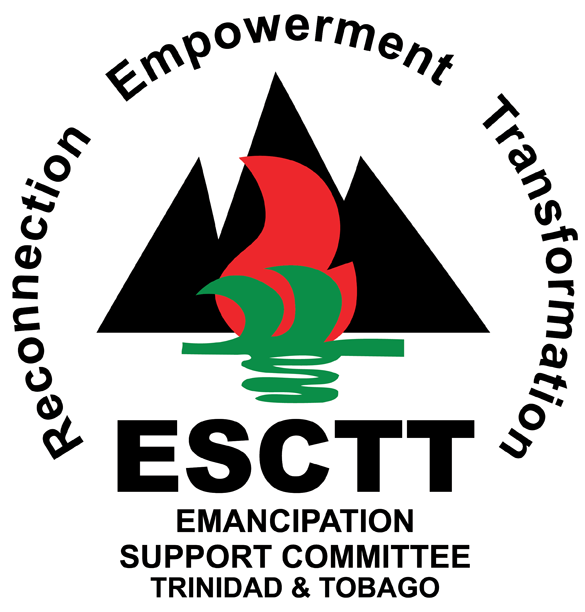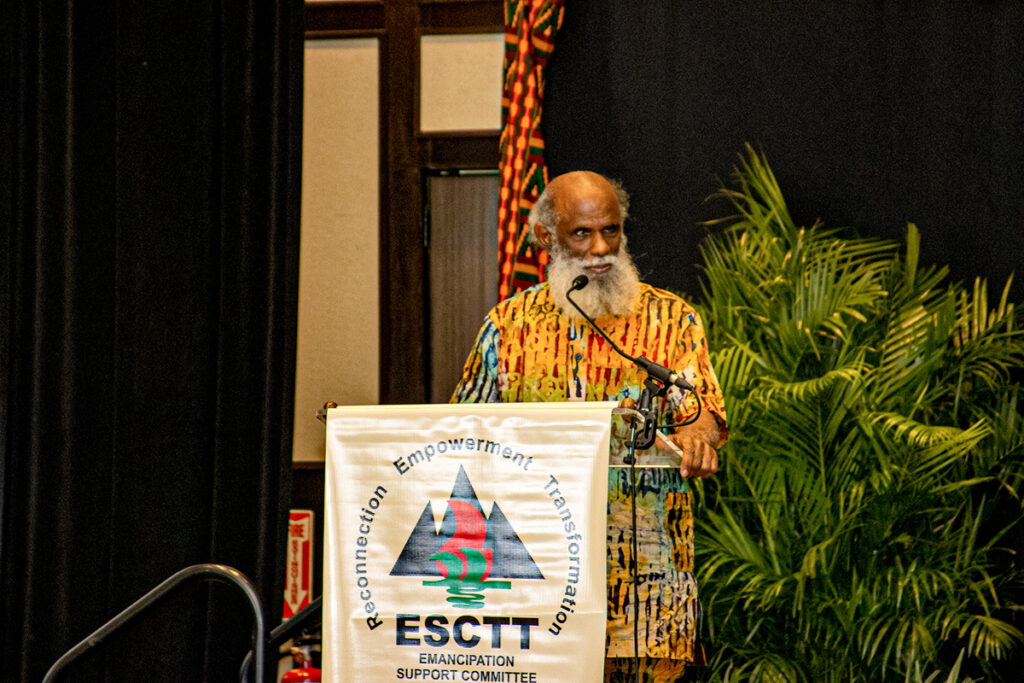Welcome to all!
Kindly allow me however, to Break protocol to give a very special and warm Welcome to His Majesty Otumfuo Osei Tutu II, The Asantehene, Monarch of the Ashanti and to His delegation.
May I also welcome our Minister of Trade and Industry, Senator the Honourable Paula Gopee-Scoon and acknowledge her continued partnership and collaboration in supporting the Trans-Atlantic Trade and Investment Symposium.
And to the Executive Chair of the Emancipation Support Committee , Ms Zakiya Uzoma Wadada for her unstinting commitment to the success of the Pan African Festival TT commemorating Emancipation, which all our special guests will experience.
I am honoured to welcome you all to the 21st annual Trans-Atlantic Trade and Investment Symposium organized by the ESCTT in conjunction with the Ministry of Trade and Industry. The ESCTT is not a business organisation. We are a non-profit organisation contributing meaningfully to many important areas of development in Trinidad and Tobago including national economic development. In this aspect of our activity over many years we have placed strong emphasis on strengthening relationships with African countries including expanding business ties between the private sectors on both sides of the Atlantic.
In 1999 we went beyond public advocacy and began an active mission in this regard with our first international business symposium which brought together governmental and private sector representatives from African countries to meet and engage in constructive dialogue and planning with local and regional counterparts. At private sector levels local and regional participants were exposed to a range of opportunities for trade with and investment in African countries. Potential investors from Africa also became aware of opportunities in Trinidad and Tobago – pan-Africanism in practice.
High level officials of the African Union (then OAU) were also involved, including the then Head of its Citizens and Diaspora Directorate, Dr. Jinmi Adisa, and later Dr Mohamed Ibn Chambas, Executive Secretary of ECOWAS (2002-2006). The involvement of these officials and the information and contacts provided, apart from stimulating Trinidad & Tobago private sector interest in Africa, positively impacted government to government relationships. Over the years it has been a pleasure to meet from time to time persons with success stories.
A very important resolution coming out of the ESCTT’s 2006 symposium included a recommendation for the Government of Trinidad and Tobago to engage in cooperation with African countries in the development of their hydrocarbon industries, given the expertise that our nationals had developed by that time. And we continued to lobby for this. The ESCTT lobbied the African Union to initiate an invitation to the then Prime Minister of the Republic of Trinidad and Tobago.
The Honourable Patrick Manning, took up the challenge. At an African Union Summit in 2007 he announced that Trinidad and Tobago would provide technical services in the hydrocarbon industry to any African country that requested it.
One writer rudely accused the then Prime Minister of “running to visit poor ancestral countries” whom he said “have no trade and economic significance for us”
In reality the benefits to our country, just as we anticipated, turned out to be tremendous. Benefits to this country have not only come in major industries such as oil and gas where our skilled personnel obtained lucrative contracts but in many other sectors of African economies. Professionals such as Teachers and nurses accepted contracts on the continent. A number of our performing artistes have benefitted. The recent collaboration between Machel Monatano and Hugh Masekala demonstrates the value of trans-Atlantic investment.
Benefits have flowed both ways as a number of entrepreneurs from Africa who come annually to the ESCTT Emancipation Village have been able to create permanent jobs in enterprises they established here. They have given boosts as well to local entrepreneurs to whom they wholesale. Outside of the straight economic returns, the positive profile of our country on the African continent was further enhanced.
Opportunities came in other ways. When the local steel mill closed down and the displaced workers who offered to purchase the plant sought our support we were able to identify entrepreneurs from Africa who were willing to partner with them in the purchase of the plant. Sadly they were not given the opportunity to do so.
One major takeaway in my mind from these experiences is that we in the ESCTT have to keep on educating, mobilizing and pushing against the obstacles to ensure that African entrepreneurship is able to overcome any barriers to success.
We also have to recognize that an important component of our potential strength lies in our connection to the richest continent on the earth, the land of our foreparents. Let us take up the mantle

